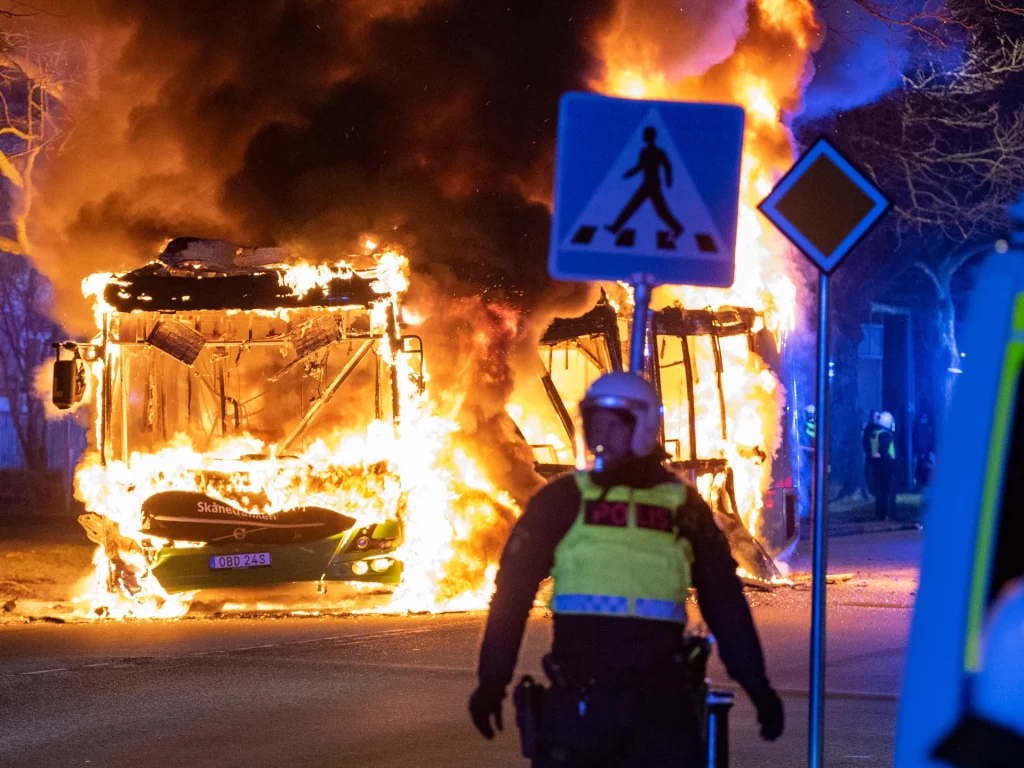
On June 29, 2023, a man burned a copy of the Quran outside a mosque in Stockholm, Sweden. The incident sparked protests and condemnation from Muslim communities around the world.
The man, who has not been identified, was granted a permit to hold a protest by the Swedish police. He burned the Quran in a public square near the mosque. The protest was organized by a far-right group called the Nordic Resistance Movement.
The burning of the Quran is considered a serious offense in Islam. It is seen as a desecration of the holy book and a provocation to Muslims. The incident has been condemned by Muslim leaders and organizations around the world.
In the aftermath of the incident, there have been protests in several Swedish cities. There have also been reports of anti-Muslim violence. The Swedish government has condemned the burning of the Quran and has called for calm.
It has highlighted the growing problem of Islamophobia in Sweden. In recent years, there have been a number of hate crimes against Muslims in Sweden. The government has been criticized for not doing enough to address the problem.
The burning of the Quran is a reminder of the importance of religious freedom and tolerance. It is also a reminder of the need to work together to combat Islamophobia and all forms of intolerance.
The Impact of the Incident
This incident in Sweden has had a significant impact on Muslim communities around the world. It has caused anger, fear, and anxiety among Muslims. It has also led to a renewed focus on the problem of Islamophobia.
It has also had a negative impact on Sweden’s reputation. It has been seen as a sign of growing intolerance in the country. This has made it more difficult for Sweden to attract Muslim tourists and investors.
The incident has also had a political impact. It has led to calls for the Swedish government to do more to combat Islamophobia. It has also led to increased scrutiny of the far-right in Sweden.

The Future
It is too early to say what the long-term impact of the incident will be. However, it is clear that it has had a significant impact on Muslim communities around the world. It has also had a negative impact on Sweden’s reputation.
This has highlighted the importance of religious freedom and tolerance. It has also shown the need to work together to combat Islamophobia and all forms of intolerance.
It is hoped that the incident will lead to a renewed commitment to these values. It is also hoped that it will lead to a more inclusive and tolerant society in Sweden and around the world
How did Countries respond?
At least 20 countries condemned the incident in Sweden. These countries include:
- Afghanistan
- Algeria
- Bahrain
- Egypt
- Iraq
- Jordan
- Kuwait
- Lebanon
- Malaysia
- Morocco
- Oman
- Pakistan
- Qatar
- Saudi Arabia
- Sudan
- Syria
- Tunisia
- United Arab Emirates
The responses of these countries varied. Some countries, such as Saudi Arabia and Egypt, recalled their ambassadors from Sweden. Others, such as Jordan and Morocco, summoned the Swedish ambassadors to their countries to express their disapproval. Still others, such as Pakistan and Malaysia, issued statements condemning the incident and calling for peace and tolerance.
In addition to these countries, the Organization of Islamic Cooperation (OIC) also condemned the incident. The OIC is a 57-member organization of Muslim-majority countries. It issued a statement calling on Sweden to take steps to prevent future incidents of Quran burning.
The burning of the Quran is a serious offense in Islam. It is seen as a desecration of the holy book and a provocation to Muslims. The incident in Sweden has highlighted the growing problem of Islamophobia in the world. It is important to work together to combat Islamophobia and all forms of intolerance.



